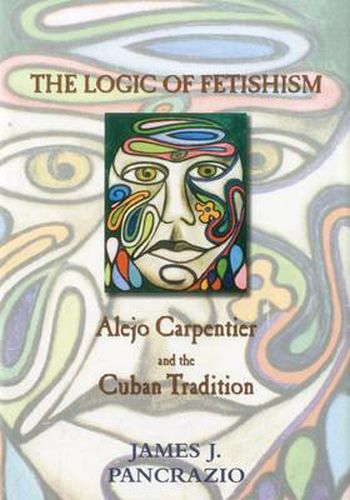Readings Newsletter
Become a Readings Member to make your shopping experience even easier.
Sign in or sign up for free!
You’re not far away from qualifying for FREE standard shipping within Australia
You’ve qualified for FREE standard shipping within Australia
The cart is loading…






Cuban author Alejo Carpentier (1904-1980) was a key figure in the foundation of contemporary Latin American fiction. By taking a critical position vis-a-vis the restitutionary current in Latin American studies (e.g., to focus on the myths of the noble savage, lost paradises, black legends, and good revolutionaries), James Pancrazio provides a highly innovative re-reading of Carpentier’s work. Borrowing theories of psychoanalysis, gender, performance, and Cuban literature and historiography, The Logic of Fetishism argues that the structure of disavowal functions as a creative alternative to the all-encompassing meta-narratives of exile and insularity. The purpose of this study is to demonstrate that transgression is written into the Cuban code: border crossings form the matrix of Cuban literature and culture. Pancrazio thus focuses on the oft-neglected transvestite, a figure who marks the entrance to the symbolic order and makes culture possible by representing representation.
$9.00 standard shipping within Australia
FREE standard shipping within Australia for orders over $100.00
Express & International shipping calculated at checkout
Cuban author Alejo Carpentier (1904-1980) was a key figure in the foundation of contemporary Latin American fiction. By taking a critical position vis-a-vis the restitutionary current in Latin American studies (e.g., to focus on the myths of the noble savage, lost paradises, black legends, and good revolutionaries), James Pancrazio provides a highly innovative re-reading of Carpentier’s work. Borrowing theories of psychoanalysis, gender, performance, and Cuban literature and historiography, The Logic of Fetishism argues that the structure of disavowal functions as a creative alternative to the all-encompassing meta-narratives of exile and insularity. The purpose of this study is to demonstrate that transgression is written into the Cuban code: border crossings form the matrix of Cuban literature and culture. Pancrazio thus focuses on the oft-neglected transvestite, a figure who marks the entrance to the symbolic order and makes culture possible by representing representation.